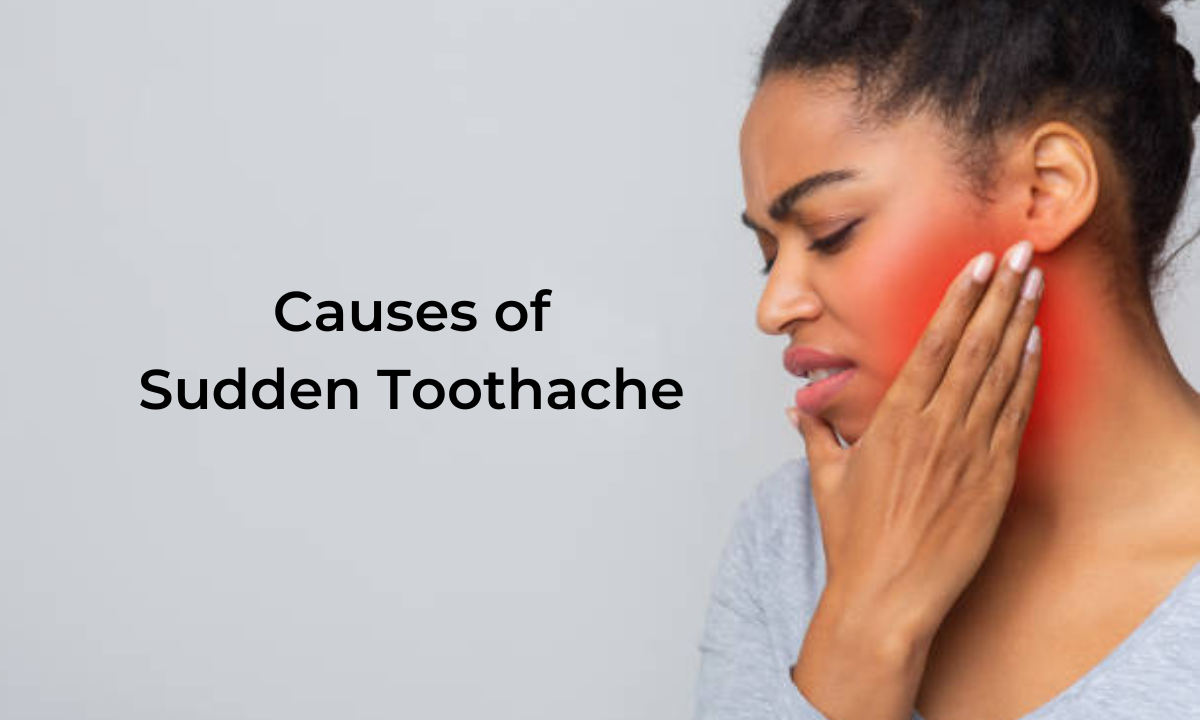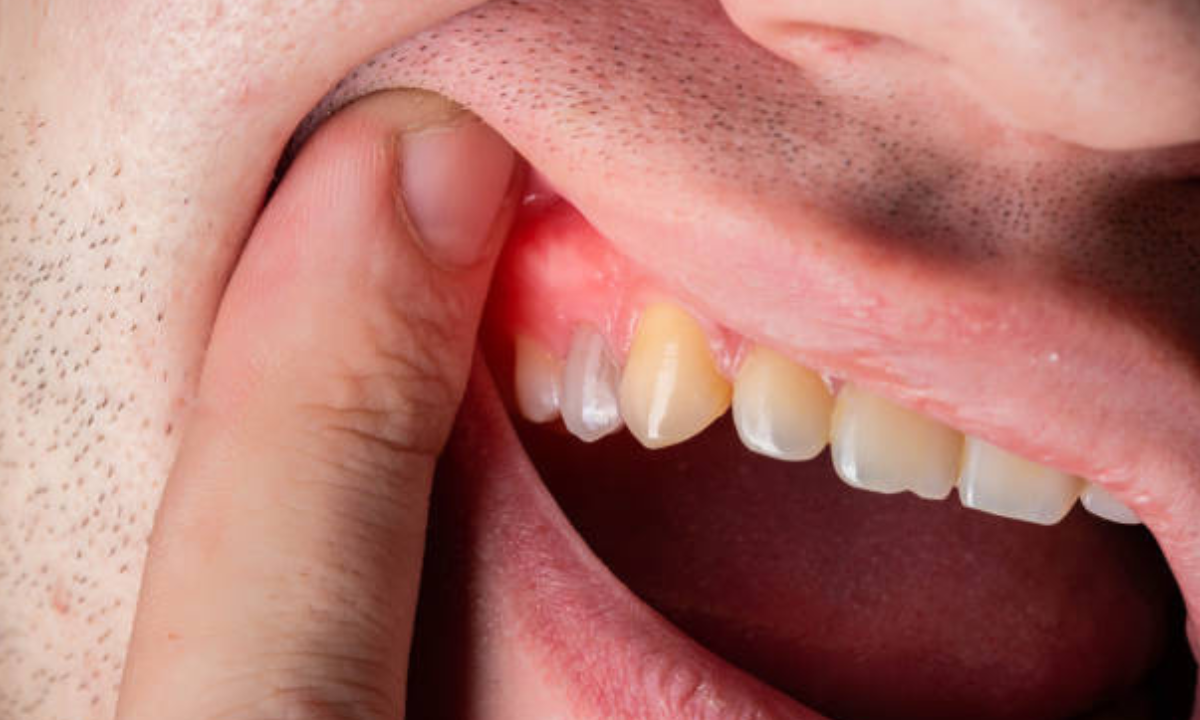A sudden toothache can be an unexpected and painful experience, disrupting your daily routine and making it difficult to eat, drink, or even talk. While tooth pain might seem like a minor issue, it can often be a sign of an underlying dental problem that needs prompt attention. Ignoring it could lead to more severe complications in the future. In this blog, we will discuss some of the most common causes of sudden toothaches and how they can be treated effectively.
If you’re dealing with a sudden toothache, seeking help from reputable dental clinics in Whitefield can ensure that you receive the proper diagnosis and treatment to alleviate the pain and address the root cause of the issue.
Common Causes of Sudden Toothaches
Sudden tooth pain can stem from various dental and even non-dental conditions. Below are the five most common causes:
- Tooth Decay (Cavities)
- Gum Disease
- Tooth Abscess
- Teeth Grinding (Bruxism)
- Dental Trauma or Injury
1. Tooth Decay (Cavities)
One of the primary reasons for sudden tooth pain is tooth decay, more commonly referred to as cavities. Cavities occur when bacteria in the mouth break down food particles and create acid, which erodes the tooth enamel. As the decay progresses and reaches the inner layers of the tooth, it can lead to sudden and sharp pain.
If the tooth decay is identified early, treatment usually involves filling the cavity to prevent further damage. However, if the decay is extensive and reaches the tooth’s pulp, a root canal may be necessary to save the tooth. Regular visits to a dental clinic in Whitefield can help identify cavities before they cause severe discomfort.
2. Gum Disease
Gum disease, or periodontal disease, is another common cause of sudden toothaches. It starts with the buildup of plaque along the gum line, leading to inflammation, bleeding, and eventual damage to the supporting structures of the teeth. As the gums recede, the tooth roots become exposed, causing sensitivity and pain.
Early-stage gum disease, known as gingivitis, can be treated with professional cleaning and improved oral hygiene. However, if the condition has progressed to periodontitis, more advanced treatments such as scaling, root planning may be necessary. A trusted dental clinic in Whitefield can offer these treatments to help restore gum health and alleviate tooth pain.
3. Tooth Abscess
A tooth abscess is a severe infection that occurs at the root of the tooth or between the tooth and the gum. It is often caused by untreated cavities, trauma, or gum disease, leading to pus buildup and extreme pain. The pain associated with an abscess is usually throbbing and persistent, sometimes accompanied by swelling or a fever.
An abscess requires immediate dental care. Treatment typically involves draining the abscess to remove the infection and performing a root canal to save the tooth. In some cases, the tooth may need to be extracted if the infection is too severe. Regular visits to a Whitefield dental clinic can help prevent abscesses through timely treatment of cavities and other oral health issues.
4. Teeth Grinding (Bruxism)
Teeth grinding, or bruxism, is a condition where a person grinds or clenches their teeth, often unconsciously during sleep. Over time, this can lead to tooth wear, cracks, and even sudden toothaches due to pressure on the teeth and surrounding tissues.
Bruxism can be managed with the use of a custom-made night guard, which helps prevent further damage to the teeth. In some cases, dental restorations like crowns may be needed to repair the damage caused by grinding. A visit to a dental clinic in Whitefield can help identify the issue and provide you with a nightguard or other treatment options.
5. Dental Trauma or Injury
Sudden tooth pain can also result from physical trauma or injury, such as a blow to the face, falling, or biting down on something hard. This can cause cracks, fractures, or even dislodging of the tooth. The pain may not be immediate, but as the nerve endings become exposed, sudden and sharp toothaches can occur.
Treatment for dental trauma depends on the severity of the injury. Minor cracks may be repaired with bonding, while more severe fractures may require a crown or even extraction. Seeking prompt care at a Whitefield dental clinic after any dental injury is essential to prevent long-term damage.
When to Seek Dental Care
It’s essential to seek professional dental care if you experience any of the following:
- Persistent pain that lasts more than a day or two
- Sharp pain when biting or chewing
- Swelling in the gums or face
- Sensitivity to hot or cold that doesn’t go away
- Fever or signs of infection
Timely intervention from a trusted dental clinic in Whitefield can prevent the issue from worsening and help you maintain good oral health.
Conclusion
Sudden toothaches are a sign that something is wrong, and identifying the cause is the first step toward relief. Whether it’s tooth decay, gum disease, an abscess, teeth grinding, or dental trauma, each condition requires specific treatment to address the root cause of the pain. Regular dental check-ups at a reputable Whitefield dental clinic are essential for early detection and treatment of these common issues, helping to prevent sudden toothaches before they occur.
If you’re in the Whitefield area and experiencing sudden tooth pain, consider visiting Growing Smiles for prompt, professional care. A thorough examination will determine the cause of the pain and ensure you get the appropriate treatment to restore your dental health.


